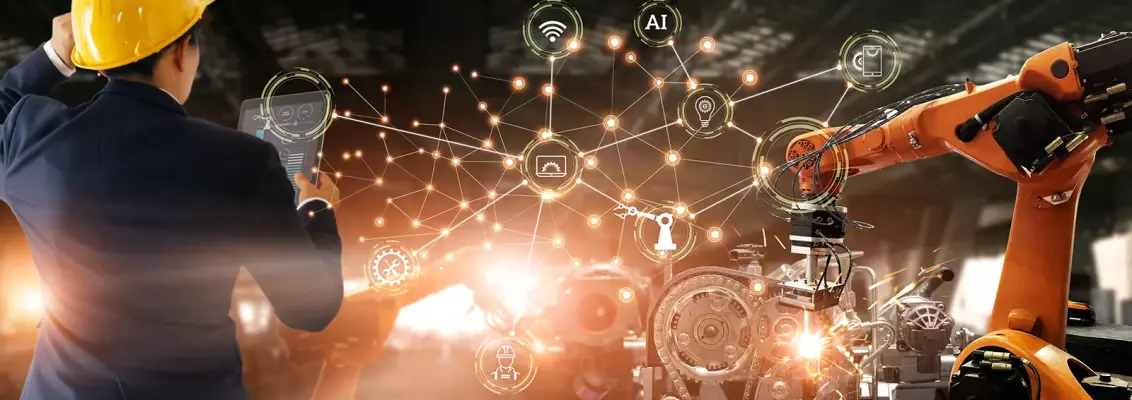Cables for industrial automation

Industrial cables
Cables designed for automation and control systems are specialized conductors that allow machines and equipment to operate efficiently and safely. These conductors are used in a wide variety of industries, including automotive, food and beverage, pharmaceuticals, and packaging, among others.
What are industrial cables for automation?
Industrial automation cables are designed to transmit power and data in automated and robotic systems. They are designed to withstand demanding conditions, such as constant movement, high temperatures, and chemical exposure. There are several types of industrial cables, including:
- Power cables: Transmit electrical energy to power machines and equipment.
- Control cables: Transmit control signals between the central control system and automated devices.
- Data cables: Transmit digital data between automation system components, such as PLCs (Programmable Logic Controllers), sensors, and actuators.
- Bus cables: Used in industrial communication networks (such as Profibus, CANopen, or Ethernet).
- Robotic cables: Specifically designed to handle continuous motion and torsion.
Automation cables are made with high-quality materials that provide mechanical strength, flexibility, and durability. They are also resistant to oils, chemicals, and abrasion, making them suitable for use in harsh industrial environments.
Types of cables used in industrial automation
These cables are classified based on their application and performance. Some of the most commonly used types include:
- PVC control cable: Cost-effective, ideal for static applications.
- PUR control cable: Flexible and resistant to oils and chemicals, suitable for dynamic applications.
- Shielded cables: Provide protection against electromagnetic interference (EMI), essential for environments with a high density of electronic devices.
- Cables for energy chains: Designed to resist high dynamic loads and continuous movement.
- Robotic cables: Torsion- and bend-resistant, ideal for robot arms and moving components.
Advantages of industrial automation cables
Helukabel’s industrial automation cables are designed to meet the highest quality and performance standards. Their use offers the following advantages:
- Greater efficiency in automated processes.
- Increased reliability and uptime.
- Reduced maintenance and operating costs.
- Improved workplace safety.
- Flexibility for dynamic and complex applications.
- Compliance with international industrial standards.
These cables are part of the infrastructure that enables real-time control and monitoring of machines, increasing productivity and reducing production costs.
The importance of choosing the right cable
In industrial automation systems, cable selection is critical to ensure proper operation. An unsuitable cable can lead to data transmission failures, system malfunctions, or even damage to equipment.
That’s why Helukabel offers a wide range of specialized cables tailored to different industrial environments. Their technical experts can advise you in selecting the right cable for your application, whether for robotics, machine tools, assembly lines, or packaging systems.
Helukabel’s commitment to innovation and quality positions it as a reliable partner in industrial automation. In addition to its wide product range, the company provides personalized technical support and customized solutions to meet each customer’s specific needs.
